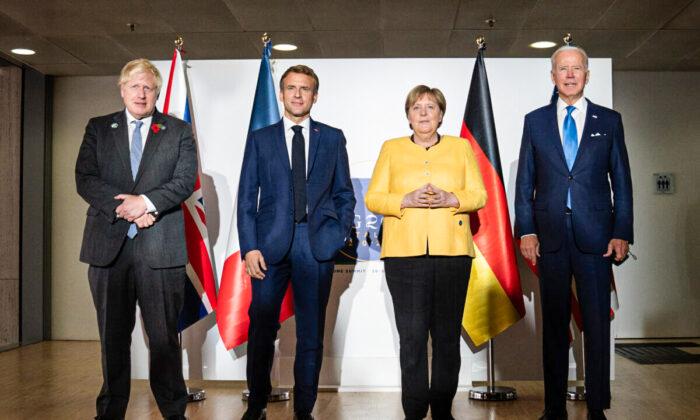Experts are concerned that President Joe Biden’s new global minimum tax rate of 15 percent on large multinational corporations will harm the small businesses that support them.
Treasury Secretary Janet Yellen confirmed on Oct. 30 that leaders of the world’s 20 biggest economies (G-20) have endorsed the “historic agreement” on new international tax rules, including a global minimum corporate tax rate of 15 percent.
The new rule would also make it harder for multinational firms, including tech giants such as Google, Amazon, and Facebook, to avoid taxation by establishing offices in low-tax jurisdictions.
It’s estimated that the measure will generate around $150 billion in additional global tax revenues annually, while stabilizing the international tax system and increasing tax certainty for taxpayers and tax administrations, according to the Organization for Economic Cooperation and Development (OECD).
“Countries around the globe have decided that to finance the public infrastructure investments that they need to invest in their people, and not to have all of the burden of raising taxes fall on workers ... this is a way to make sure that all countries in a fair way can collect more,” Yellen said.
Combined, both tax rates could leave America’s largest businesses paying more than 30 percent in new taxes.
The Business Roundtable, which represents some of the largest companies in the United States, said the two tax proposals impose $800 billion in tax increases on businesses and would “aggravate the serious competitive disadvantage faced by U.S. companies relative to their foreign competitors.”
But experts fear the new 15 percent global minimum tax could inadvertently harm small businesses in the United States that support the multinational corporations, leaving them exposed and making it more difficult for those firms to enter foreign markets because of the higher cost of conducting business abroad.
Small businesses that rely on multinational corporations will likely find themselves bearing the tax burden too, while those that rely on multinational companies for supplies could see costs increased further amid an ongoing supply chain crisis and skyrocketing prices.
“If you are a successful multinational company, you have the resources to navigate these rules, but it’s an extra layer of compliance to bury small business,” he said. “It turns smaller companies into acquisition targets rather than true competitors.”
The minimum tax could cost the U.S. 500,000 to 1 million jobs and slash investment by $20 billion, The Washington Times reported, citing an August report by Ernst & Young, a multinational professional services network.
“This is going to have a real impact,” Rep. Kevin Brady of Texas, the ranking Republican on the House Ways and Means Committee, told the outlet. “At the end of the day, our foreign competitors are going to insist on a big bite of America’s tax revenues. None of this makes any economic sense for America, certainly not for our ability to compete and win anywhere in the world, including here at home.”
Treasury Department officials didn’t immediately respond to a request by The Epoch Times for comment.
President Joe Biden, who traveled to Rome for the G-20 summit, wrote on Twitter that leaders “made clear their support for a strong global minimum tax,” calling it “more than just a tax deal—it’s diplomacy reshaping our global economy and delivering for our people.”
The minimum tax rate will apply to corporations with global revenue exceeding 750 million euros (roughly $870 million).






Friends Read Free